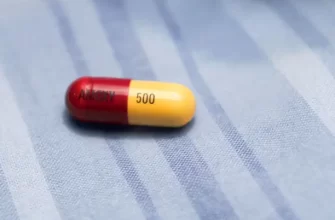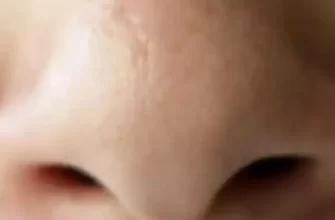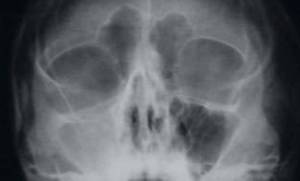What Is Chronic Sinusitis? Chronic sinusitis, also known as chronic rhinosinusitis, is a prolonged inflammation of the sinus cavities that lasts for 12 weeks or longer. Unlike acute sinusitis, which typically resolves within a few weeks, chronic sinusitis often requires specialized treatment and can significantly impact a person’s quality of life.
Prevalence of Chronic Sinusitis by Age Group
| Age Group | Prevalence (%) |
|---|---|
| 18-29 | 15% |
| 30-49 | 25% |
| 50-64 | 30% |
| 65+ | 35% |
How Common Is Chronic Sinusitis?
Did you know that approximately 30 million adults in the United States are diagnosed with chronic sinusitis each year? According to the CDC, it’s one of the most prevalent chronic illnesses, affecting about 12% of the adult population.
What Causes Chronic Sinusitis?
Several factors can lead to chronic sinusitis, including:
- Allergies: Persistent allergic reactions can irritate the nasal passages.
- Deviated Nasal Septum: A misaligned septum can obstruct sinus drainage.
- Nasal Polyps: These growths can block the sinuses and contribute to inflammation.
- Infections: Recurring bacterial or fungal infections can exacerbate symptoms.
- Environmental Factors: Pollutants, cigarette smoke, or dry air can worsen the condition.
What Are the Symptoms?
Chronic sinusitis presents a range of symptoms, each with distinct characteristics and real-life examples:
- Persistent nasal congestion: Many patients describe the feeling as if their nose is perpetually stuffed, even with no apparent triggers. For instance, John from Chicago experienced worsening congestion during the colder months, finding relief only through consistent use of humidifiers and saline nasal sprays.
- Thick nasal discharge (often yellow or green): This is a hallmark symptom of chronic sinusitis. Maria from Austin struggled with daily nasal discharge that disrupted her work schedule, ultimately requiring medical intervention with nasal corticosteroids and antibiotics.
- Facial pain or pressure, particularly around the eyes and forehead: Patients often liken this to a dull, unrelenting ache or a tightening sensation across the face. Mark, a teacher in Denver, noted that his sinus-related facial pain escalated during high-stress periods, prompting him to take breaks and use warm compresses for temporary relief.
- Reduced or lost sense of smell: This symptom can severely impact daily enjoyment and routine. Linda from Los Angeles recounted her inability to savor meals, which motivated her to consult a specialist. Her treatment plan included biologics, which restored much of her olfactory function.
- Headaches and fatigue: These often-overlooked symptoms can be debilitating. Jake from New York City shared how his recurrent headaches led to chronic exhaustion, forcing him to reduce social activities and seek targeted therapies, including endoscopic sinus surgery.
These examples underscore the diverse and impactful nature of chronic sinusitis symptoms, demonstrating how tailored treatments can provide meaningful relief.
Symptom Duration vs. Quality of Life Impact
| Symptom Duration | Quality of Life Impact (%) |
|---|---|
| 1-3 months | 25% |
| 4-6 months | 50% |
| 7-12 months | 75% |
| 1 year or more | 90% |
This chart illustrates how longer symptom duration significantly increases the impact on quality of life, emphasizing the importance of early intervention in chronic sinusitis cases.
Can It Be Mistaken for Other Conditions?
Absolutely. Chronic sinusitis symptoms often overlap with allergies, migraines, and even TMJ disorders. A thorough diagnosis is essential to distinguish these conditions.
How Is Chronic Sinusitis Diagnosed?
Physicians use several methods to diagnose chronic sinusitis, including:
- Physical Examination: Observing nasal passages for inflammation or discharge. This basic yet essential step typically costs between $100 and $200 in most U.S. clinics and can often be performed during a routine office visit.
- CT Scans: Providing detailed images of the sinuses. These scans are more expensive, usually ranging from $300 to $600, but they offer unparalleled insights into structural issues or severe blockages. The procedure takes about 10-15 minutes and is widely available in imaging centers and hospitals.
- Endoscopy: A thin, flexible tube with a camera offers a closer look at the nasal cavity. Often performed by ENT specialists, this diagnostic tool costs approximately $200 to $500 and typically takes less than 30 minutes. Patients often report minimal discomfort.
- Allergy Testing: Identifying potential triggers. Depending on the type of test—skin prick or blood test—the price can range from $150 to $300. Results are usually available within a week, and testing is commonly offered in allergist’s offices and specialized clinics.
Treatment Options for Chronic Sinusitis
Effectiveness of Treatments
This chart compares the effectiveness of various treatments for chronic sinusitis, highlighting FESS as the most impactful option.
Medical Treatments
- Nasal Corticosteroids: These sprays are commonly prescribed to reduce inflammation and swelling in the nasal passages, offering a critical first step in controlling symptoms. Regular use can also help prevent flare-ups.
- Saline Nasal Irrigation: A simple but highly effective method to flush out mucus and allergens from the nasal passages. This therapy is often recommended as part of daily hygiene for those with persistent symptoms.
- Antibiotics: Prescribed if bacterial infections are present, antibiotics are targeted treatments designed to eliminate underlying infections that exacerbate sinus inflammation.
- Antihistamines: Useful for patients with underlying allergies, these medications help to control the allergic responses that can contribute to sinus issues. They also provide relief from related symptoms like sneezing and nasal itching.
- Biologics: Targeted therapies such as Dupilumab have shown significant promise in managing chronic sinusitis, especially for individuals with nasal polyps. These advanced treatments work by addressing the specific inflammatory pathways involved in chronic conditions and are becoming increasingly accessible to patients.
Surgical Options
When medications fail to provide relief, surgery may be necessary. The most common procedure is functional endoscopic sinus surgery (FESS), which clears blockages to restore normal drainage.
Lifestyle Adjustments to Manage Symptoms
- Humidifiers: Keeping indoor air moist can prevent nasal passages from drying out.
- Allergy Management: Identifying and avoiding triggers can help.
- Hydration: Drinking plenty of water thins mucus.
Real-Life Cases
In 2022, a New York woman who suffered from chronic sinusitis for five years found relief after undergoing FESS. Similarly, a Seattle resident reported significant improvement with a combination of Dupilumab and allergen avoidance strategies. These cases highlight the effectiveness of tailored treatments.
Did You Know?
A study published in the American Journal of Rhinology & Allergy found that 60% of patients with chronic sinusitis also had undiagnosed allergies. Addressing these allergies significantly reduced symptoms in most participants.
Modern Trends in Treatment
The integration of biologics and minimally invasive surgical techniques has revolutionized chronic sinusitis care. Advances in imaging and diagnostics now allow for personalized treatment plans that maximize effectiveness and minimize recovery time.
Time to Relief Based on Treatment Type
| Treatment Type | Time to Relief (Weeks) |
|---|---|
| Nasal Corticosteroids | 4 weeks |
| Saline Nasal Irrigation | 3 weeks |
| Antihistamines | 6 weeks |
| Biologics | 5 weeks |
| FESS (Surgery) | 2 weeks |
This chart highlights the average time to relief for different chronic sinusitis treatments, with FESS providing the quickest results.
Editorial Advice
If you’ve been dealing with sinus symptoms for months, don’t ignore them. Chronic sinusitis can lead to complications like orbital cellulitis or even meningitis if left untreated. Consult a specialist to explore tailored solutions that address the root cause of your symptoms. Remember, relief is possible with the right approach!









